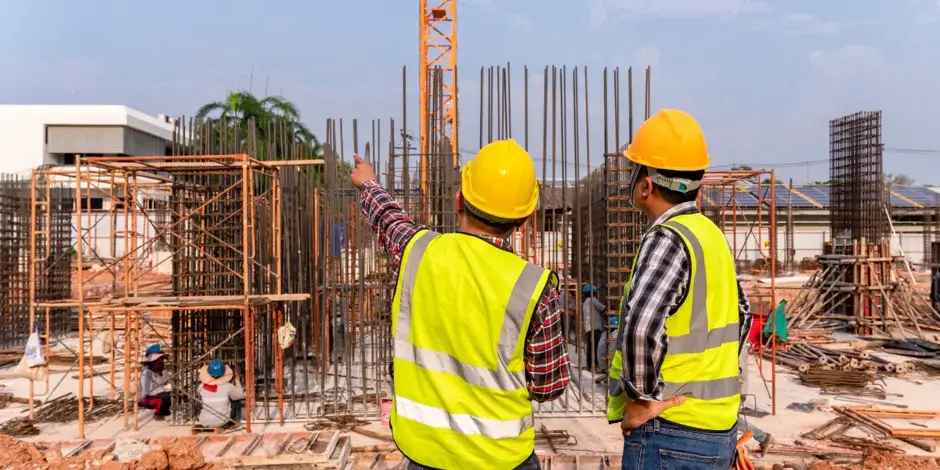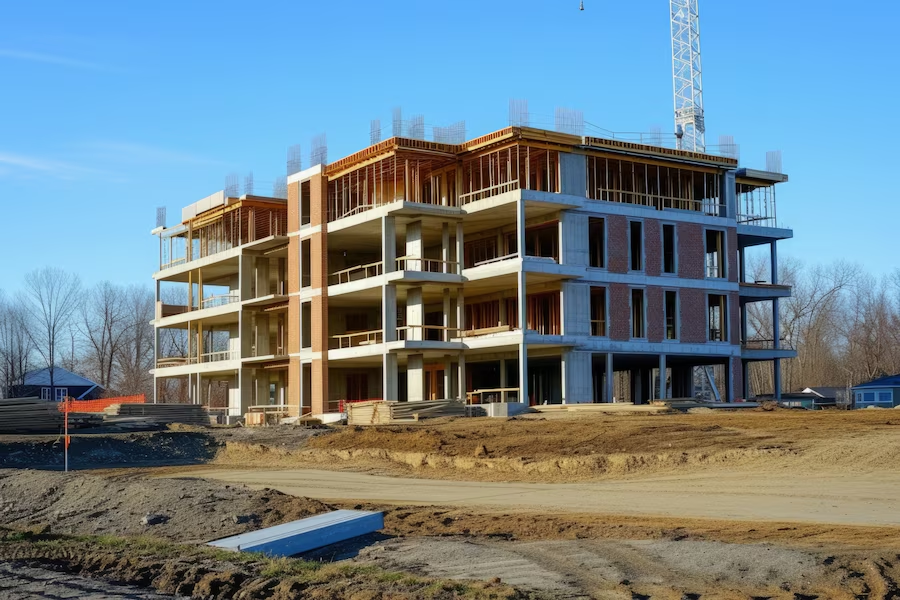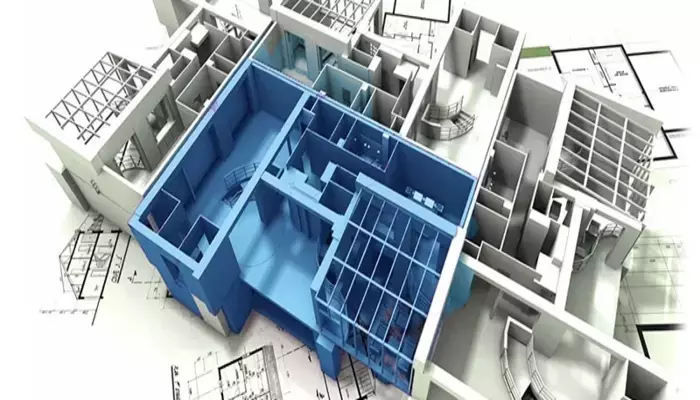How to Become a Construction Engineer: Ultimate Guide

Table of Contents
Did you know that the construction industry is expected to grow by 8% over the next decade? This growth indicates the rise in demand for Construction Engineers. They play a crucial role in designing, planning, and overseeing construction projects like buildings, roads, and bridges.
With urbanisation and infrastructure development on the rise, there is an increasing need for experts who can oversee complex projects using BIM (Building Information Modelling) software and other construction tools, ensuring they meet all regulatory standards.
Read further to know everything about Construction Engineers, from who they are to the training required to succeed in this field.
Understanding the Role of a Construction Designer
Construction Engineers’ role is vital in the construction and engineering industry. They are responsible for overseeing and managing construction projects from inception to completion. Here is a detailed look into various aspects of construction Engineering.
1. What is Construction Engineering?
Construction Engineering is a branch of civil engineering focused on the design, planning, and management of construction projects. It involves applying engineering principles to ensure that structures are built safely, efficiently, and sustainably. This field combines technical knowledge with project management skills to oversee large-scale projects such as buildings, roads, bridges, and other infrastructure.
2. Who is a Construction Engineer?
A Construction Engineer is a professional who manages construction projects and ensures they are completed on time, within budget, and according to specified standards. However, many wonder, what does a Construction Engineer do? They are involved in the planning, design, and execution of construction projects. Their responsibilities include conducting site investigations, creating project plans, and coordinating with other professionals like architects, contractors, and clients. Civil engineering and building construction are integral to their role, requiring expertise in both areas to ensure successful project completion.
3. Construction Engineer Job Responsibilities
The job responsibilities of a Construction Engineer are diverse and crucial for the successful project completion. Let’s have a look at some of their key duties:
- Developing detailed project plans that outline the scope, timeline, and resources needed.
- Overseeing construction sites to ensure compliance with safety regulations and project specifications.
- Working closely with architects, contractors, and other stakeholders to ensure smooth project execution.
- Ensuring that all materials and workmanship meet the required standards and specifications.
- Addressing any issues or challenges that arise during the architecture design process.
- Maintaining accurate records of project progress, including reports and documentation.
4. Scope of work for Construction Engineer
The scope of work for a Construction Engineer varies depending on the project and their specific role. Some of the common areas they work in include:
- Infrastructure Projects: Designing and managing the construction of roads, bridges, highways, schools, and commercial places.
- Building Projects: Overseeing the construction of residential, commercial, and industrial buildings based on the requirement.
- Environmental Projects: Working on sustainable architecture projects that focus on environmental protection, such as working waste management systems, creating green building models, and water treatment facilities.
- Project Management: Leading project teams, managing budgets, and ensuring that projects are completed on scheduled timeline.
- Safety Management: Implementing and monitoring safety protocols to protect workers and ensure compliance with regulations.
Also Check out: Understanding Autodesk Navisworks: A Comprehensive Guide
Key Skills for Construction Engineer
To excel in a construction engineering job, you need a combination of technical knowledge, practical experience, and soft skills. Here are some key skills every Construction Engineer should have:
1. Mastering Technical Skills
A strong foundation in technical skills is crucial for any engineering & construction professional. These include proficiency in BIM software, understanding construction methods, and knowledge of materials science. Being adept at reading and interpreting blueprints and technical drawings is also essential. These skills ensure that a Construction Engineer can effectively plan, design, and oversee construction projects.
2. Developing Analytical Skills
Construction Engineers must have excellent analytical skills. This involves the ability to assess complex problems, evaluate various solutions, and make informed decisions. Analytical skills help in predicting potential issues and finding efficient solutions. Whether it is calculating load-bearing capacities or optimising construction schedules, these skills are vital for ensuring the success of construction projects.
3. Enhancing Creative Skills
Creativity is often overlooked in engineering & construction, but it plays a significant role. Construction Engineers need to think creatively to develop innovative solutions to challenges that arise during the construction process. This could involve finding new ways to use materials, designing structures that are both functional and aesthetically pleasing, or improving construction processes.
4. Strengthening Communication Skills
Effective communication is essential for Construction Engineers. They must be able to convey complex technical information clearly to clients, contractors, and team members. Good communication skills also involve listening and understanding the needs and concerns of all stakeholders. This ensures that projects run smoothly and that everyone involved is on the same page.
5. Building Project Management Skills
Construction Engineers often oversee multiple aspects of a project, from initial planning to final execution. This requires strong organisational skills, the ability to manage time effectively, and the capability to handle multiple tasks simultaneously. Good project management skills ensure that projects are completed on time, within budget, and to the required quality standards, especially in civil engineering and building construction.
How to Become a Construction Engineer?
Becoming a Construction Engineer involves a blend of education, practical experience, and continuous learning. Here are the steps you need to follow to pursue a successful career in construction engineering:
Step 1. Understand the Role and Responsibilities
It is important to understand what construction engineering is and what does a Construction Engineer do. Construction Engineers manage and oversee construction projects, ensuring they are completed on time, within budget, and according to specifications. They work closely with architects, civil engineers, and other professionals to coordinate and plan construction activities.
Step 2. Get a Bachelor’s Degree in Construction Engineering or Related Field
To start your journey in Construction Engineering, you will need a bachelor’s degree in Civil Engineering, Construction Engineering, or a related field. This education provides the foundational knowledge required for construction engineering jobs. Typical coursework includes subjects like materials science, structural analysis, and construction methods.
Step 3. Obtain Certification and Training
To enhance your qualifications and career prospects, it is essential to pursue relevant certifications and training. Specialised training in areas like BIM for Construction Engineering can give you an edge in the field. Practical training through internships and co-op programs provides valuable hands-on experience. Many Construction Engineering programs offer these opportunities as part of the curriculum. Moreover, obtaining certifications in niche areas like sustainability, safety, and project management can further enhance your skills and employability.
Step 4. Pursue a Master’s Degree
While not always required, a Construction Engineering masters can significantly boost your career prospects. Advanced degrees offer specialised knowledge and skills that can qualify you for higher-level positions. Programs typically cover advanced topics in project management, construction law, and sustainability practices.
Step 5. Gain Practical Experience
Practical experience as a Construction Engineer or site engineer is crucial in Construction Engineering. Internships, co-op programs, and entry-level positions provide hands-on experience and a better understanding of Construction Engineer job responsibilities. Working under the supervision of experienced engineers helps you apply theoretical knowledge to real-world projects.
5 Top Construction Engineering Courses
Staying competitive in the construction engineering field requires continuous learning and professional development. Here are top 5 courses and training programs to help you build a successful career in construction engineering.
1. BIM Professional Course for Civil Engineers by Novatr
- Duration: Eight Months
- Mode: Online
The BIM Professional Course for Civil Engineers offered by Novatr is a specialised training program designed for professionals in construction and civil engineering. This course focuses on the application of BIM in civil engineering projects. This course focuses on creating detailed 3D models, performing clash detection, and improving project coordination, which are crucial for a civil engineer in construction roles. The curriculum also covers project lifecycle management and sustainability practices, enhancing skills relevant to construction engineer jobs.
Key Learnings:
- Introduction to BIM
- Creating Parametric Structure Families
- 10+ BIM Tools including Revit, Tekla, and STAAD.pro
- BIM Applications for Infrastructure
- BIM Workflows and Processes
- 4D and 5D BIM Modelling Techniques
- Clash Detection and Coordination Using Models
2. Project Management Professional (PMP) Course – Simplilearn
- Duration: Not Specified
- Mode: Online
It is a comprehensive construction engineer training program designed for professionals in construction and civil engineering. This covers essential project management principles, making it ideal for those in construction engineer jobs. Students will learn about project planning, execution, and control, aligning with the responsibilities of a civil engineer in construction. The course also emphasises risk management, cost estimation, and stakeholder communication. This certification is valuable for those seeking to advance in construction engineering services or pursuing a construction engineering online degree, enhancing their expertise in managing complex engineering & construction projects.
Key Learnings:
- Engineering Economics
- Leadership
- Project Cost Estimation
- Work Breakdown Structure
- Resource Allocation
- Cost Management
- Gantt Charts
- Mathematical Project Scheduling Models
- Project Cost Estimation
- Cost Management
3. Certified QA QC Course – SMEC
- Duration: One Month
- Mode: Online/Offline/Hybrid
This course is one of the best construction engineering certifications that provides comprehensive training in quality assurance and quality control, essential for a civil engineer in construction roles. Participants will learn about industry standards, inspection methods, and testing procedures, enhancing their skills for construction engineer jobs. The curriculum covers various aspects of civil engineering jobs and building construction, including material testing and non-destructive testing (NDT). This certification is ideal for those looking to improve their qualifications in construction engineering services and seeking advanced construction engineer training.
Key Learnings:
- QA/QC Documentation
- Safety Management System
- Project Specifications
- Process and Approval Construction
- Project Management
- Quality Control Plan
- QC Checklist for Construction
- Process and Approval Construction
- Project Management
Also Check out: Top 20 FAQs on BIM for Civil Engineers
4. Professional Certificate in Construction Management – edX
- Duration: Four months
- Mode: Not Defined
This edX’s Professional Certificate in Construction Management is an in-depth program designed for professionals in construction and civil engineering. This course covers essential topics such as project planning, cost estimation, and quality control, which are crucial for construction engineer job responsibilities. Participants will gain skills in BIM for Construction Engineering and learn about sustainable building practices. The program is suitable for those pursuing a construction engineering online degree or looking to enhance their expertise through construction engineering certifications.
Key Learnings:
- Construction Oversight
- Methods of Project Delivery
- Estimating Costs
- Project Planning
- Administrative Tools in Construction Oversight
- Sustainable Practices in Management
5. Civil 3D for Infrastructure Design – Autodesk
- Duration: Two Hours
- Mode: Online
Autoesk Civil 3D for Infrastructure Design course is an essential training program for professionals in construction and civil engineering. This course focuses on enhancing the skills required for Construction Engineering jobs by teaching advanced design tools and techniques. The students and professionals will learn various aspects of construction like roadway design, grading optimisation, and a lot more that aligns with the need of modern construction engineering services.
Key Learnings:
- Site Design
- Grading Optimisation
- Roadway Design
- Storm and Sanitary Design
- Corridor Modelling
- Plan Production
Conclusion
Becoming a Construction Engineer requires a blend of technical skills, practical experience, and ongoing education. It required various skills such as project management, construction methods, structural analysis, and a lot more. Learning and training for Construction Engineering through the advanced courses can significantly enhance your expertise.
Novatr offers BIM Professional Course for Civil Engineers, equipping the professionals and aspiring Construction Engineer with the latest tools and techniques needed in the industry. You can enrol for the course to take your career to the next level.
For more industry updates, you can visit our Resources Page!

 Thanks for connecting!
Thanks for connecting!

-1.png)
.png?width=767&height=168&name=BIM-C%20A%20(Course%20Banner).png)
.png)
.png)




